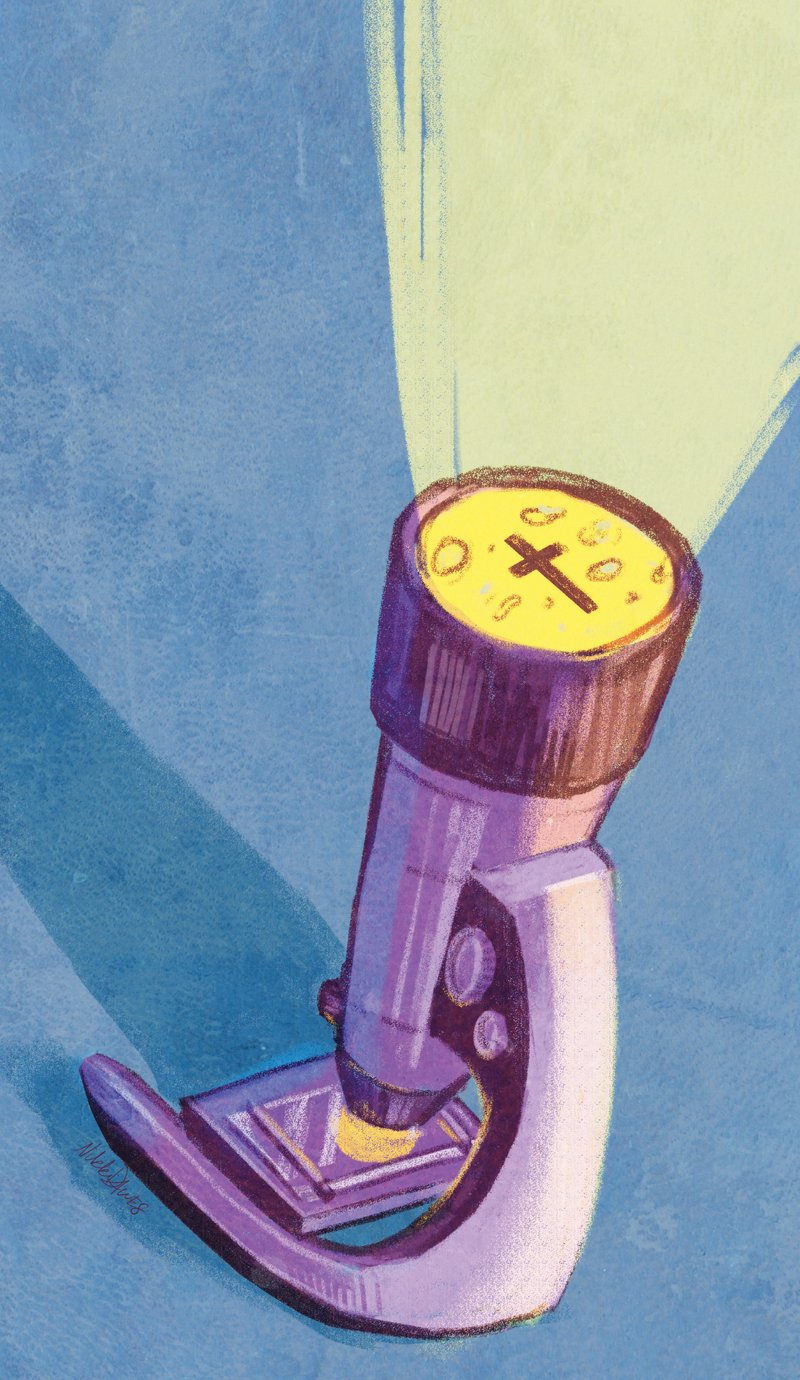From the astronomer Galileo Galilei's heresy trial under the Roman Inquisition to the controversy that surrounded Charles Darwin's theory of evolution, science and religion are portrayed as crossing swords as often as paths throughout history, but Little Rock's Trinity Episcopal Cathedral offers an integrated understanding of both in its course "Christian Faith and Modern Science."
The Rev. Christoph Keller III, dean and rector of Trinity; and Dr. Stefanie Leacock, a freelance consultant for genetics education, alternate leading the course's hourlong classes that are held at 6 p.m. Wednesdays through December.
The course touches upon topics that include interpretations of Scripture; incarnation, passion and evolution; and Darwinism, alongside lessons on emerging genetic technology, cosmology and big-bang theory; and ways of understanding science and facts.
Beliefs in science and faith need to strike a balance, according to Keller.
"Theologians and philosophers know that the truth can't be at odds with itself," Keller said. "We can't believe one set of things in church on Sunday and believe an entirely different set of things that are incompatible with that Monday through Saturday.
"There has to be compatibility ... between the truth that we affirm about God and the world in faith and the things that we accept about God in the world that we've learned [about] through science."
Leacock was raised in the church and met her husband, a chaplain at Little Rock's Episcopal Collegiate School, while they were students at Yale. She also has recently finished a two-year fellowship with Sinai and Synapses, an organization that facilitates religion-science dialogue.
A sense of awe and wonder, Leacock said, is what compels many people to study science -- or religion.
"Scientists study something because they are amazed by it, whether that's a small thing, or the vastness of the universe," Leacock said. "The same is true for people of faith. We are overwhelmed sometimes with [the] wonder of things in creation."
Keller describes the science of evolution in the course description as "deeply consistent with a faithful understanding of the world, humanity and God," and plans to focus on teachings related to his dissertation, which center in part on the idea that the events of the incarnation, passion and resurrection of Christ -- which reveal God's nature -- harmonize with struggles that can be witnessed in nature.
"It is the fulfillment, the understanding of God as engaged within creation, the person of Christ and his suffering in incarnation, passion and evolution ... that helps make sense of what I really think is probably the greatest challenge with Darwin's science with regard to faith and religion -- which is just the amount of suffering that does happen in nature," Keller said.
Science and religion, Leacock said, are topics that "some people feel you can [just] learn from a book," giving an image of the Bible as containing everything one needs to learn about their faith, or the image of an unwieldy textbook containing all a student needs to learn about science.
"As ... someone who thinks about genetics education, I want [students] to think about, 'How do we understand that? Why is that a fact?' or "How did this come to be, and what is still left unknown?
"We can look at our faith the same way and use our foundation [of asking questions] ... and in that way we can think about [answering questions] as evolving ways of understanding rather than a collection of facts that we find in a book."
The course is reflective of a larger movement toward education and conversation about religion and science. Leacock, who has taught a similar weeklong class at Christ Episcopal Church in Little Rock, said she began her first lesson at Trinity by showing a short video on awe and wonder that is part of Science for Seminaries -- an initiative of the American Association for the Advancement of Science -- that acknowledges a need for scientific knowledge in religious communities.
"Many people look to their religious leaders for guidance on ... contemporary issues relating to science and technology," reads a report on the association's website. "And yet clergy members often have had little exposure to science in their education and training."
Keller first taught a Sunday series on the topic of science and religion at Trinity in 2014, but his interest in the topic extends back to when, after 16 years in the ministry, he returned to school and his doctoral adviser was an expert in the field.
Leacock said the course, which will have its fifth class Wednesday, is one she likes to conduct in the form of discussion, but above all that she is "not meant to be the know-it-all teacher who has all the answers; I'm really just here to say, 'I'd love to think about this with you.'"
"We want our churches to be places where we can come with our questions, where we can sort of lay that burden down ... we can share [those questions] with each other and we can experience awe together, we can experience doubt together," Leacock said.
Keller said it's rare for a sermon of his to not at least imply some of the ideas covered in the course.
"Faith is a force that takes us to places that reason can't take us, but it doesn't leave reason behind in going there, and I have confidence in that," he said. "Not that my sermons can't be boring -- they can be boring -- but I think that people walk away ... knowing that they didn't leave their mind behind in coming there. They walk out with their mind engaged and hopefully their heart too."
Religion on 09/30/2017

